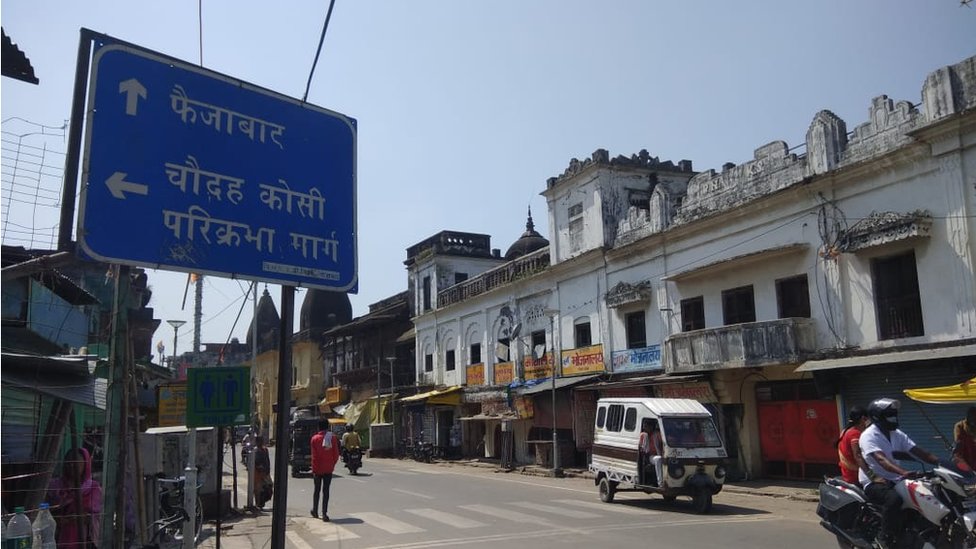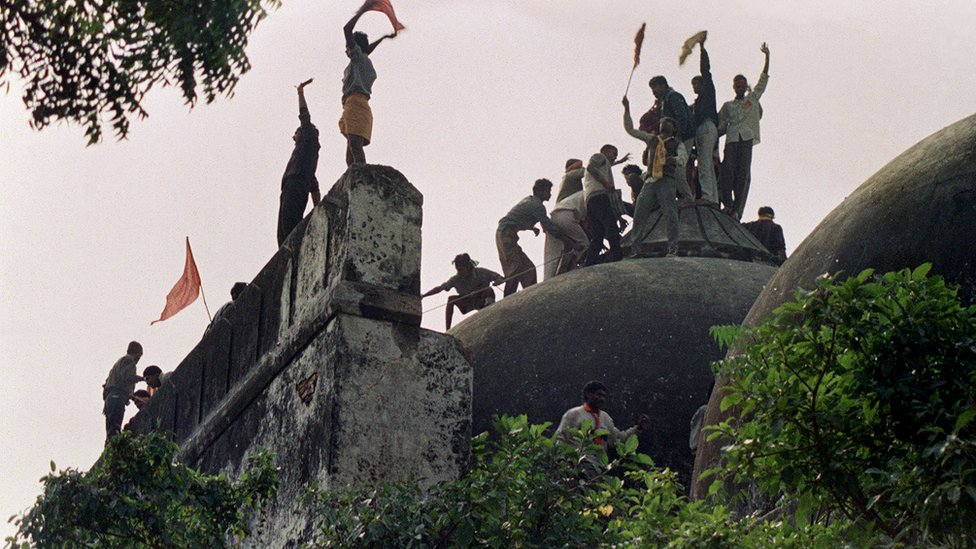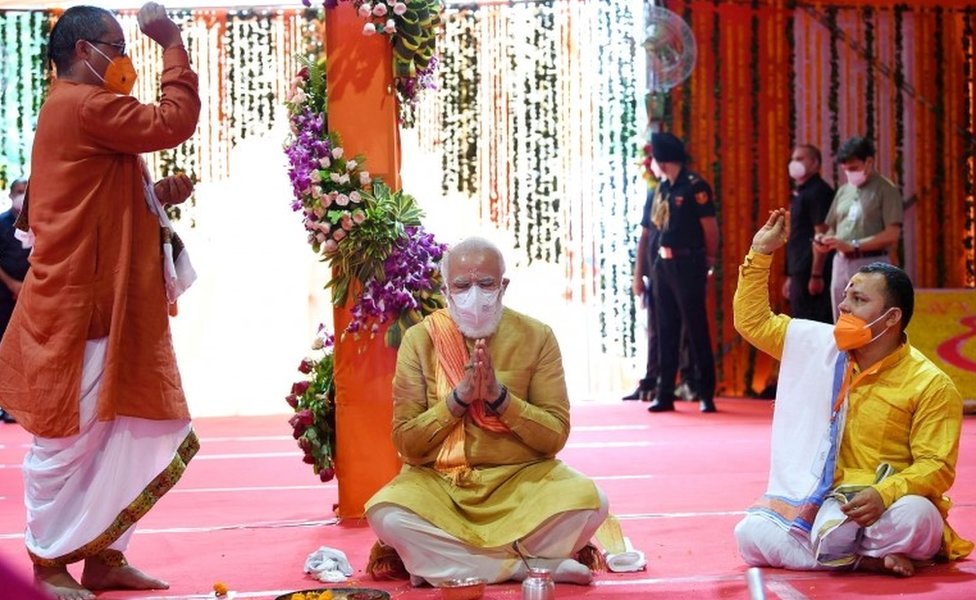A special court has acquitted top leaders from India's governing party for their alleged role in the demolition of a mosque in 1992.
Former deputy prime minister LK Advani and BJP leaders MM Joshi and Uma Bharti had denied charges that they incited Hindu mobs to demolish the 16th Century Babri mosque in the town of Ayodhya.
The demolition sparked violence that killed some 2,000 people.
It was also a pivotal moment in the political rise of the Hindu right-wing.
Investigations – by a federal agency and an independent commission – had implicated top rung leaders of the Bharatiya Janata Party (BJP), including former prime minister Atal Behari Vajpayee, who died in 2018.
Charges were finally framed against 49 people, including Mr Advani, Mr Joshi and Ms Bharti, in 1993. Seventeen of them have since died.
On Wednesday, the court acquitted all the accused, saying there was insufficient evidence to prove that the demolition had been planned. The All India Muslim Personal Law Board has said it will appeal the verdict in the high court.
The three BJP leaders were not in court and watched the verdict through video conference. Media was not allowed to enter the courtroom.
The judgement is both historic and contentious, with political observes saying it's likely to add to the feeling of discontent and marginalisation among India's 200-million Muslim minority.

It comes nearly a year after another historic judgment over the site of the mosque. Last year, the Supreme Court gave the disputed land to Hindus, ending the decades-long legal battle over ownership.
Ruling that the demolition of the mosque was "an egregious violation of the rule of law", the top court gave Muslims another plot of land in Ayodhya on which to construct a mosque.
Hindu mobs demolished the mosque, saying it was built on the ruins of a temple for Lord Ram – they believe the deity was born in Ayodhya.
In August, Prime Minister Narendra Modi laid the foundation stone for a Hindu temple at the site – a core promise made by his BJP and a hugely symbolic moment for its strident Hindu nationalist base.
What happened on 6 December 1992?
The gathering at the mosque began as a religious procession organised by three right-wing Hindu groups, including the then main opposition BJP.
The organisations had pledged to begin work on building a temple at the site.
But they had given a commitment to the government and the courts that it would be a symbolic start – there would be a religious ceremony and no damage would be done to the mosque.
The BBC's Mark Tully, who witnessed the destruction at first hand, wrote that "a vast crowd, perhaps 150,000 strong, had gathered and was listening to speeches given by BJP and right-wing Vishwa Hindu Parishad (VHP) leaders".
Among those present were Mr Advani, now 92, and Mr Joshi, now 86. Both became prominent figures in the later BJP-led government.
 image copyrightAFP
image copyrightAFPAt some point, thousands of young men armed with shovels, hammers, iron rods and pick axes charged towards the outer cordon of police protecting the mosque, scrambled on top of the mosque's central dome and started hacking away at the mortar.
Photographer Praveen Jain, who was at the site, remembered that the violent mob "attacked journalists and broke cameras of photographers in an effort to wipe out any photographic evidence of the demolition as it was under way a few metres away".
In the matter of a few hours, the mosque was razed to the ground.
Within hours, Hindu-Muslim riots broke out in different parts of India. The worst violence was in Mumbai, where an estimated 900 people were killed.
A commission was set up, led by former high court judge MS Liberhan to investigate events that led to the demolition. The inquiry took 17 years to complete and its 900-page report was submitted to the government in 2009.
It blamed senior BJP figures, including former PM Atal Behari Vajpayee and Mr Advani.
The inquiry said the build-up to the demolition had been meticulously planned and described BJP leaders as "pseudo-moderates", the Indian media reported.
Political scientist Zoya Hasan called the demolition "the most blatant act of defiance of law in modern India".
What was the case about?
India's Central Bureau of Investigation (CBI) interviewed nearly 850 witnesses and examined more than 7,000 documents, as well as 100 reports, photographs and video tapes of the incident filed by journalists, according to AG Noorani, lawyer and constitutional expert, in his book Destruction of the Babri Masjid: A National Dishonour.
The federal agency has always maintained that the destruction was a planned event.
Nearly 50 police cases were filed against BJP leaders, hardline Hindu groups and "unknown" volunteers who had participated in the destruction and in attacks on journalists covering the incident. Some 350 witnesses finally deposed before the court.
 image copyrightReuters
image copyrightReutersThe BJP leaders denied their role, but Muslim leaders alleged the demolition was a planned move by Mr Advani, who was lRead More – Source



/cdn.vox-cdn.com/uploads/chorus_image/image/65543002/bbc_logo_red.0.jpg)